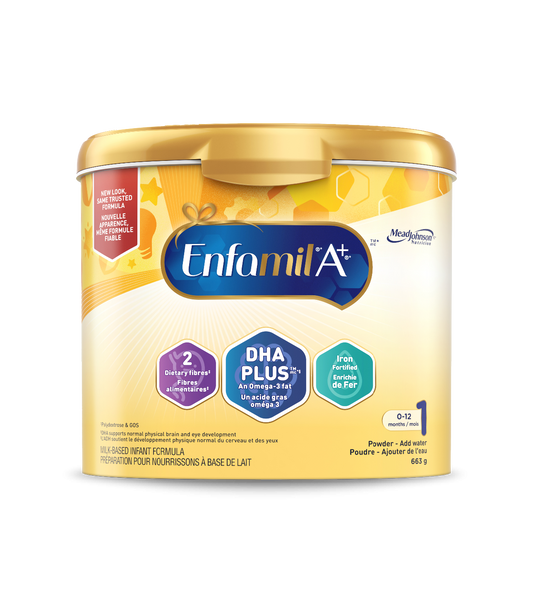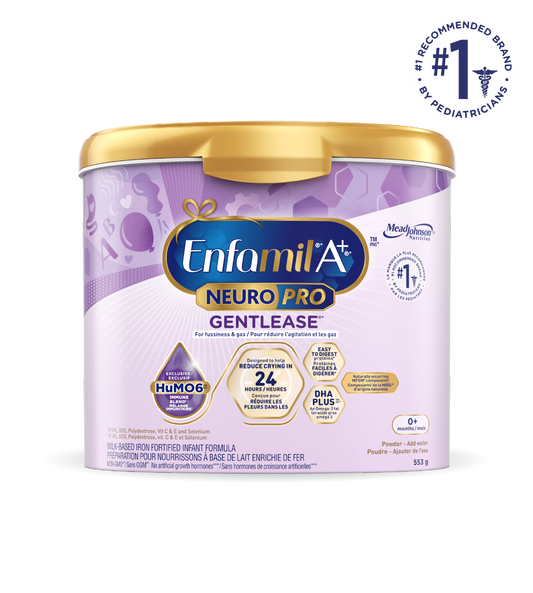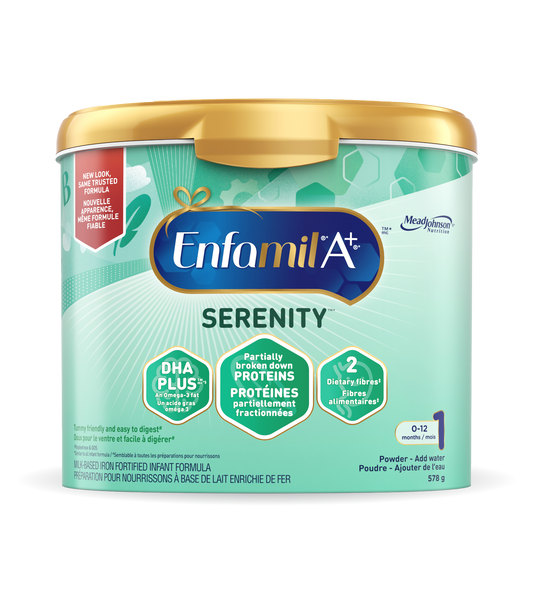Thinking about supplementing breast milk with formula, but are getting all kinds of conflicting information from well-meaning friends and family?
![]()
Myth #1: Nobody formula feeds. They exclusively breast feed.
The Canadian Paediatric Society, Dietitians of Canada, Breastfeeding Committee for Canada, and Health Canada recommend exclusive breastfeeding for the first six months of life, and continuing breastfeeding, after introducing solid foods, for up to two years or beyond. Breastfeeding is the best nutrition option for babies. 46% of Moms feed their baby a combination of breast milk and formula at some point during the first three months.* If you choose to supplement, you’re not alone. Every Mom and baby pair is unique and so is their situation and feeding decision.
The most prevalent reasons moms choose to supplement:
- Share feeding duties
- Provide extra nutrition when necessary (ie. Low milk supply)
- Facilitate returning to work
![]()
Myth #2: Your breast milk supply will dry up if you supplement with baby formula.
It’s true that the more breast milk your baby drinks, the more your body produces; but adding some infant formula to your baby’s diet won’t make your milk disappear.
When supplementing your feeding with formula, you are not expressing as much milk, so your body does not need to replace as much.
![]()
Myth #3: Formula is not safe and healthy for babies.
Today’s baby formulas are closer to breast milk than ever before. Formulas offer essential nutrients such as vitamin D. Most formulas also have important omega-3 and omega-6, fatty acids, ARA and DHA.
DHA and ARA are important as they support your baby’s rapidly developing brain and eyes. Infant formulas contain recommended daily amounts of the key nutrients needed for your baby’s development and they are the safest alternative to breast milk and is the most regulated in the food category. Scientific research continues to unravel additional benefits that breast milk provides beyond nutrition.
![]()
Myth #4: You can’t bond with your baby if you formula feed.
Feeding time is one of the best and most important times of connection. Even when you formula feed, your baby still knows that they are being held, loved, and nourished. If supplementing or formula feeding gives you peace of mind, that is a plus. It means you are less worried about your ability to be attentive and loving to your baby.
You are better able to focus on your baby and worry less about impending outside circumstances (ie. returning to work). Formula feeding gives other important family members a chance to develop their own bonding relationship with your baby.
![]()
Myth #5: Doctors don’t recommend formula feeding.
Doctors know that some issues can crop up to make exclusive breastfeeding difficult. These can include:
- Health problems in the mother (such as a difficult delivery or postpartum depression),
- Challenges with milk production
- Health problems in the baby (that make breastfeeding difficult or interfere with weight gain)
Doctor’s will be able to recommend the best formula to address your baby’s needs. Whenever you’re having challenges with feeding, talk to your doctor. Baby-care experts have seen all kinds of situations, and ultimately, they share the same goal as you…a happy, healthy, thriving baby.
* https://www.ncbi.nlm.nih.gov/pmc/articles/PMC4719110/











